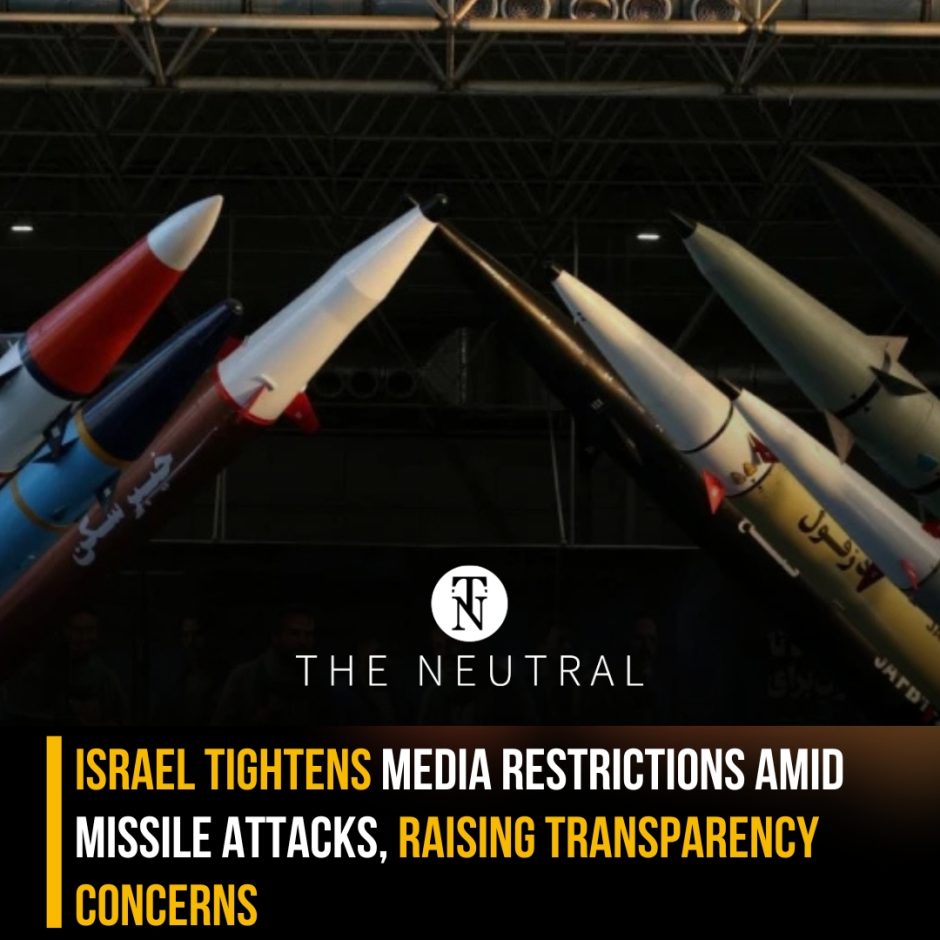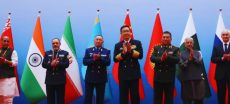Israel has admitted to being struck by over 50 missiles during its 12-day conflict with Iran, but the full extent of the damage remains unclear due to strict press censorship. Long-standing regulations allow Israeli authorities to ban any reporting deemed a threat to “national security,” a broadly defined term.
These restrictions, which date back to the British mandate period before Israel’s founding in 1948, have intensified following recent Iranian missile attacks that penetrated Israel’s air defenses, killing 28 people. Under current rules, journalists must obtain military approval before broadcasting from missile impact sites or combat zones—especially near strategic locations like military bases or oil facilities.
Read More : PIA Restarts Gulf Flights After Israel-Iran Ceasefire
“While there are legitimate security concerns, this censorship also obscures the true scale of Israel’s vulnerability,” said Tel Aviv University media sociology professor Jerome Bourdon. “The public may never know the full damage.”
Government communications during the war have largely emphasized military successes, with Prime Minister Benjamin Netanyahu declaring a “historic victory” over Iran. Analysts suggest the media crackdown also aims to reshape the narrative as Israel faces global condemnation over its Gaza offensive, which has caused widespread devastation and a humanitarian crisis.
Accusations and Media Crackdowns
On June 19, Defense Minister Israel Katz accused Iran of “deliberately targeting hospitals and residential buildings” after a strike on a Beersheba hospital injured 40 people. Iran denied intentionally attacking civilian sites, while Israel itself faces accusations of systematically destroying Gaza’s healthcare infrastructure.
Foreign journalists covering missile strikes in Israel have reported obstacles, including police interrupting broadcasts. In Ramat Gan, officers halted two Western news agencies filming a damaged building, alleging they were supplying footage to Al Jazeera—a network Israel banned in 2024 over alleged Hamas ties, a claim the broadcaster denies.
National Security Minister Itamar Ben Gvir, known for his hardline stance, vowed a “zero tolerance” approach to those “undermining state security.” Critics argue such measures exceed legal authority. “These officials exploit security rhetoric for political gain,” said Tehilla Shwartz Altshuler of the Israel Democracy Institute.
Despite government assurances of press freedom, observers note growing hostility toward both local and foreign media. The Government Press Office maintains it treats all journalists equally, but experts warn the restrictions risk eroding transparency during a critical time.











